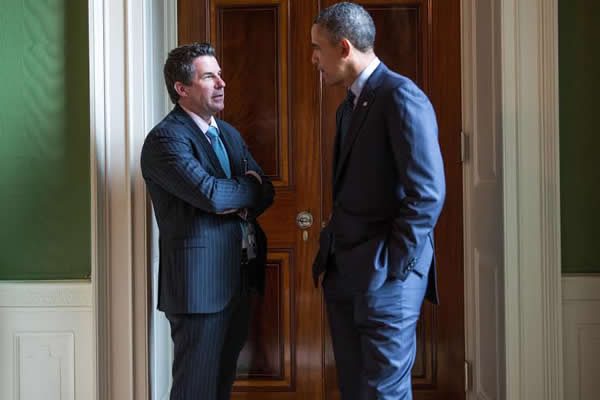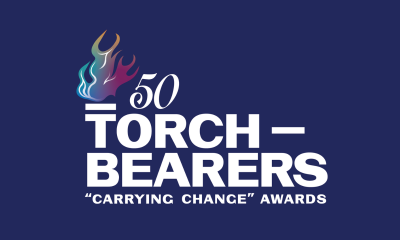Opinions
Diane Abbitt remembers MECLA and Harvey Milk
His push for honesty still inspires people around the world to come out
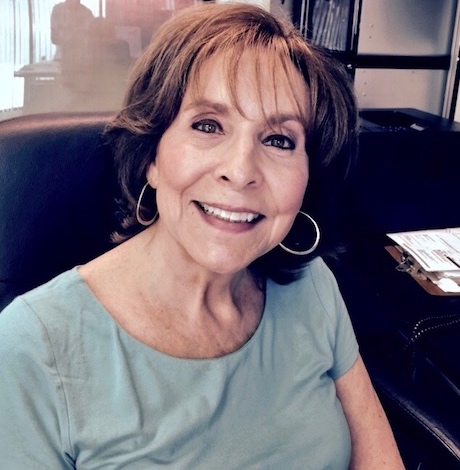
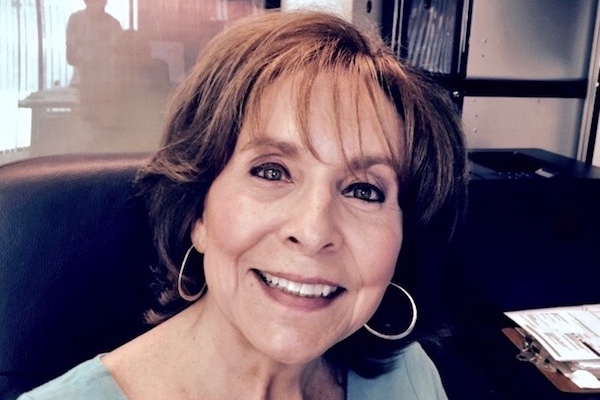
Attorney Diane Abbitt helped found and has served on the boards of several LGBT organizations, including MECLA, APLA and HRC.
It does not seem possible that the LGBT community is commemorating the 40th anniversary of the death of Harvey Milk on this day, Nov. 27, 2018. So much has changed, so many rights won and yet so many challenges remain. As time passes, fewer and fewer people are left who remember the beginning of the movement as we know it today—the scrappy grassroots Gay Liberation Front organizing social services and eradicate-shame consciousness-raising at the Gay Community Services Center and a group of successful lawyers and business leaders raising money and forming the first gay political action committee to elect pro-gay officials in Los Angeles; and in San Francisco, their spirited political activism included businessman Harvey Milk, who made history winning a seat on the San Francisco Board of Supervisors in 1978. Few remain who remember what that meant to a fledgling community—but Harvey’s assignation still reverberates past the shock of that day.
I came out in 1973. Imagine a time when there was no internet, no social media, no television shows that had a gay or lesbian character, no gay Pride parades, no Human Rights Campaign, no Equality California, no Victory Fund, no WEHO, no Williams Institute, no celebrity-filled black-tie fundraisers, no books or courses on the LBGTQ community. Magazines and newsletters were mailed in non-descript brown covers so no one would know its contents. There was no way, except by word of mouth or in bars, for lesbians or gay men to connect, to find community.
My first discovery of community was through radical lesbian separatist feminists who thought that men had no place in the movement and that lesbians with male children should give them away. Since I had two very young beautiful sons that I was fighting to keep in my care and custody, this philosophy did not work for me. Then a friend told me that LA NOW (National Organization for Women) was having a Lesbian Mothers meeting. That changed the course of my life and I soon became the first co-chair of LA NOW’s Lesbian and Sexuality Task Force.
Meanwhile, gay men were also searching for community. Some discovered it at the Los Angeles Gay Community Services Center, founded in 1969 and headquartered in an old Victorian building on Wilshire Boulevard. They offered social services and held men’s consciousness raising groups offering gay men an alternative to the bathhouse and bar scene.
There was also another group called Orion. They were seven gay men led by lawyers Peter Scott and Stephen Lachs, who would become the nation’s first out gay judge. There were all smart, successful and closeted in the outside world. But as their sense of shame dissipated and self-acceptance grew, they wanted to give back to the community and to make it easier and safer for other gay people to live their truth. After much debate, in 1977, they formed the first PAC whose mission was legal protections and full equality, including a seat at the legislative table, for gay people. The goal seemed large and daunting! Even choosing a name was challenging. It had to be non-descript, something an accountant who didn’t know the contributor was gay would not question, and so MECLA (Municipal Elections Committee of Los Angeles) was born.
But finding people to contribute was hard! The MECLA board expanded to 11 and the men began the tedious task of raising money to fund the PAC. Therapist Rob Eichberg had raised money for the Jewish community and the men adopted that model—asking friends to a roundtable luncheon, locking the doors (figuratively speaking), then going around the table asking/telling each person how much they were giving. Eventually Peter realized lesbians should be included and I, along with other non-board members, raised what today we would think of as a small budget. I got so good at raising money, I was elected MECLA’s first female board co-chair.
The first year, two candidates to whom MECLA contributed returned the money when they realized the source of the funds would have to be reported in their campaign filing report. As MECLA’s success grew, it became the model for HRC and other political action committees throughout California.
At the same time MECLA was getting off the ground, San Francisco was going through its own coming out process. Harvey Milk had moved to San Francisco from New York in 1972 and opened a camera shop in the Castro. The shop became the center of gay political activism as Harvey campaigned three times for a seat on the San Francisco Board of Supervisors, in 1973, in 1975, and finally in 1977, when he won. During those four years, he developed his political acumen, built relationships and coalitions and started describing himself as “The Mayor of Castro Street” at a time when the gay vote was starting to be recognized as powerful.
Peter Scott, David Mixner and I, among many others in Los Angeles, worked with Supervisor Harvey Milk to defeat Prop 6, the Briggs Initiative, on Nov. 7, 1978—a spectacular success! Twenty days later, Harvey was assassinated. It’s still shocking to remember. But Harvey’s humor and often too-loud leadership brought an awareness of injustices being suffered by the gay community not only in San Francisco but beyond. His hopeful campaign for LGBTQ people to come out still inspires people around the world.
Opinions
Do not forget that Renee Good was queer
Far-right media link shooting victim’s sexuality to her protest of ICE
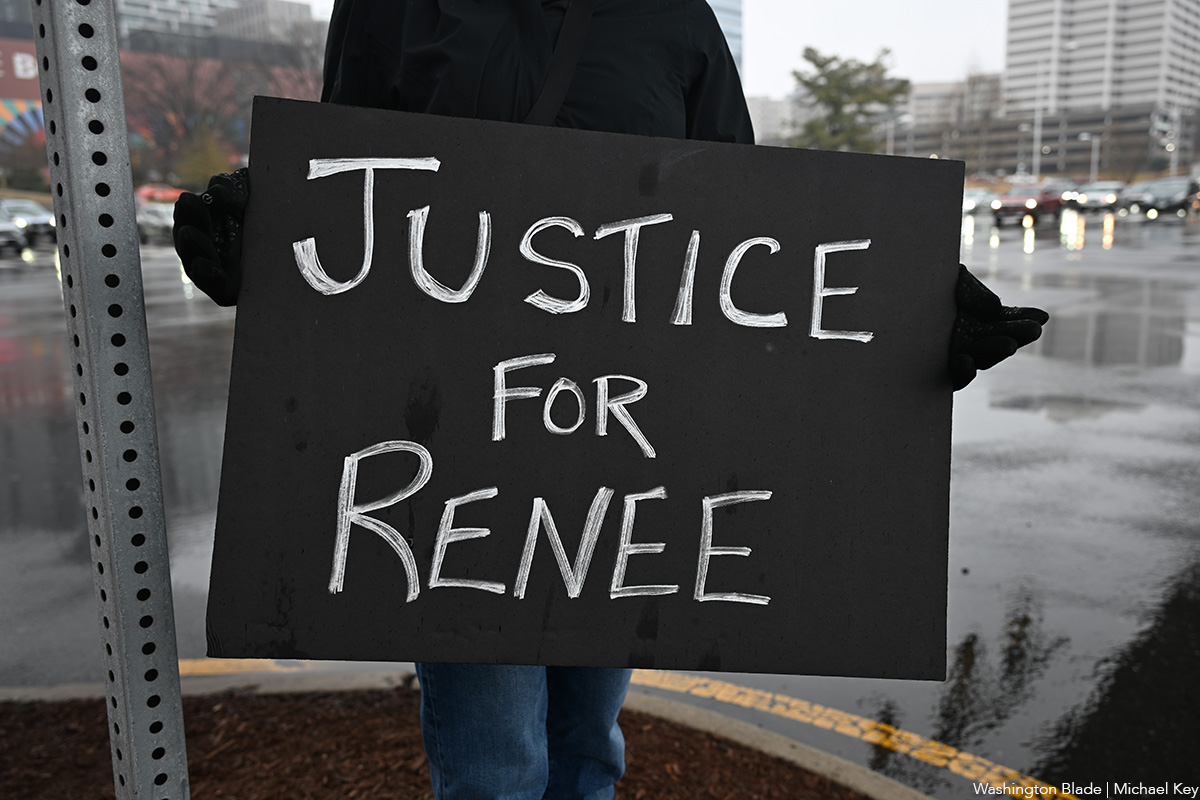
Please do not forget that Renee Nicole Good was a queer woman.
Last week, Good, a 37-year-old American citizen, was shot and killed by a United States Immigration and Customs Enforcement agent in Minneapolis. Her wife Rebecca Good was present when the ICE agent shot her, standing outside their car. In the immediate aftermath, Minneapolis erupted with protests aimed at ICE in the city and Republican officials, including President Donald Trump and Vice President JD Vance, who argued the shooting was justified as an act of self-defense.
In a press conference held this past Thursday, Vance told reporters that Good was “a victim of left-wing ideology.” “I can believe that her death is a tragedy,” Vance said,” while also recognizing that it is a tragedy of her own making.” Many criticized Vance’s statement, especially given how he blamed “left-wing extremism” for Charlie Kirk’s death in September on a Utah campus and Vance himself doubled down on condemning those who were celebrating the far-right podcaster’s fatal shooting.
Department of Homeland Security Secretary Kristi Noem implied that Good was a domestic terrorist while Fox News host Jesse Watters said that “the woman who lost her life was a self-proclaimed poet from Colorado with pronouns in her bio.”
Laura Loomer, another far-right Trump supporter, tweeted, “‘She/her.’ Literally every time,” in response to what is believed to be Good’s Instagram account. Loomer and Watters both pointed out her pronouns are somehow part of the reason she was tied to ICE-related violence.
As these comments from far right pundits show, far-right media coverage was quick to connect Good’s queerness to her work to inhibit ICE activity in Minneapolis.
But while far-right news outlets highlighting Good’s queerness, centrist and even leftist news outlets also erased her wife’s experience, featuring interviews with Good’s mom and ex-husband but not her wife who was present for the shooting, feeding into the narrative that she was an “innocent” white mother while denying Good’s own agency in mobilizing for immigrants in her community.
Nobody should be shot by government agencies ever, and these news outlets do not need to play into the construction of an “innocent” white woman for people to be outraged by her death. In fact, in doing so and denying Good’s queerness, they deny the way in which Good’s identity likely affected the way she interacted with the police. For queer and trans people, police are not safe people–in fact, Good’s last words deescalating the situation reflect the ways that homophobia and misogyny prime queer women, and all women to placate men’s emotions.
And it still didn’t work. After shooting her, the ICE agent called her a “fucking bitch,” in front of her wife who was kept away from Good while she bled out in her car.
When the media reinforces the narrative that she was an “innocent” mother, it reinforces the same sexism and racism that allows police brutality to continue.
In an interview, author of the book After Purity released this past December, Sara Moslener said that “White womanhood has been constructed to require that white women sort of maintain purity within themselves as a way to maintain the purity within themselves as a way to maintain the purity of, the innocence of, the nation state. When the purity movement resurfaced in the 1990s, it was this recapitulation of the 19th century nation of sexual purity that was highly racialized.”
“It wasn’t something that was accessible to enslaved women, to other women of color, to immigrant women. It was this ideal of true womanhood that became connected to this idea of a strong nationstate. That rhetoric was then used to justify racial terror lynchings. If white women were threatened, you know, physically, bodily, culturally, they have the right to claim things. This was often used as a guise to justify violence and murder, especially against Black men. It even ties to the concept of Karen and the entitlement of white women, where they can weaponize their vulnerability,” Moslener said.
Good’s shooting for many people was a breaking point for this very reason — because it represented the first time that they had witnessed a white person killed by an ICE agent or a member of the police.
For some, their whiteness had been a source of safety because of the privilege of their skin color, or so they thought until Good’s murder this past week. In the aftermath, they are rethinking if this privilege will continue to protect them and what it can mean in a world where violence against white women’s bodies has long caused social backlash.
This is not a reason to stop fighting — Good was not the first person killed by ICE, not even the first person killed by ICE in 2026, but her whiteness is one of the central reasons that it incited outrage — because of a society that privileges and protects white women’s bodies. To describe Good as solely an “innocent” white woman, to deny her queerness, is to play into this performance of outrage about the brutalization of white women’s bodies.
If discussions of Good’s queerness — and persistent queerphobia against queer women — is not considered in our outrage, in our protests, we feed right into the same narratives that mean some police brutality, especially that against queer and trans people and people of color, goes completely unreported and unchallenged.
This is state-sanctioned violence, and in the immediate aftermath of Good’s death, the Trump administration has demanded that people deny the evidence of their eyes and ears, has pushed the narrative that Good weaponized her vehicle against an ICE agent and that agent fatally shooting her was an act of self defense. This is categorically false but denying what we know to be true, what we can witness ourselves and understand, is the final step in fascism armed and funded by the government.
But let’s be frank: This is not the first time that the American police or a government agent has murdered an unarmed person. Just under six years ago, George Floyd was murdered by police officers in the same city — his death was a breaking point for many who had witnessed police brutality against people of color.
While people are eager to say Good’s name, we cannot say or remember her without remembering and saying the names of Black and Brown men and women, especially disabled people of color, who have been murdered in the hundreds by the police. Their names are often said, their murders often go unquestioned.
People have been and will continue to say Good’s name largely because she was a white woman but the names of Black and Brown people go unsaid and unrecognized because of a system that performs outrage about violence against white bodies. What Good’s murder realized was how a system built on the protection of white women — a Christian nationalism committed to Social Purity — will still sacrifice white women who refuse to fall in line.
Six federal prosecutors in Minnesota resigned this week over the Justice Department’s push to investigate Good’s widow. Among them was Joseph Thompson, a career federal prosecutor, who objected to investigating Good’s wife as well as the department’s refusal to investigate whether the shooting was lawful.
In the signs, in the protests, in the prayers and pleas that you say and make in the aftermath of Good’s murder, do not deny her queerness, do not deny who she was and do not deny the work she did because in performing outrage against the murder of an “innocent” white mother we replicate the same systems of harm that hurt us all.
Emma Cieslik is a museum worker and public historian.
Letter-to-the-Editor
D.C. electoral bumper car season is in full swing
More than a dozen candidates running for incumbent Eleanor Holmes Norton’s seat

The District of Columbia has entered into a challenging time not seen since Dr. Martin Luther King was murdered, the city burned and rioted and risked home rule being taken away. While statehood has twice passed the U.S. House of Representatives, the dream of being the 51st star on the American flag stagnates, to say the least.
Currently according to Politics 1.com, there are already 14 Democrats including two sitting members of the City Council (At-Large Robert White and Ward 2’s Brooke Pinto) and one Republican who have declared their candidacy to become the new voice in Congress. Unfortunately Congresswoman Eleanor Holmes Norton has refused to either announce her intentions to run for re-election again or gracefully acknowledge her time is over and she is ready to hand over the reins to continue the battles inflicted upon our home city. Congressional representation by press releases has simply got to stop as soon as possible!
Rank choice voting is going to be implemented in this 2026 cycle despite efforts to overturn or delay its implementation. Regardless of your thoughts on the new system, this will be one very interesting contest year to say the least. Rank choice … ready or not … here it comes!
Needless to say, the race for the Congressional seat is not the only major contest. Let us not forget the other positions up for election: the mayor, the attorney general, the chairman of the City Council, several ward and at-large races for the council. Add all these up and you will be looking at more moves on the political chess board than seen in the first Harry Potter film with the same results too. (As an aside, while the District of Columbia has no elected senators, it should be pointed out that any elected House member AND the District mayor have Senate floor privileges when in session.)
Before the June primary, it would be wise to make sure your voting registration is still current at the D.C. Board of Elections. Also, please urge friends not registered to do so as soon as possible. May we have the strength and will power to take back our city and stand up to those who want to destroy it.
Opinions
Zach Wahls stood up for us, now let’s stand with him
Young Iowa Democrat running for U.S. Senate
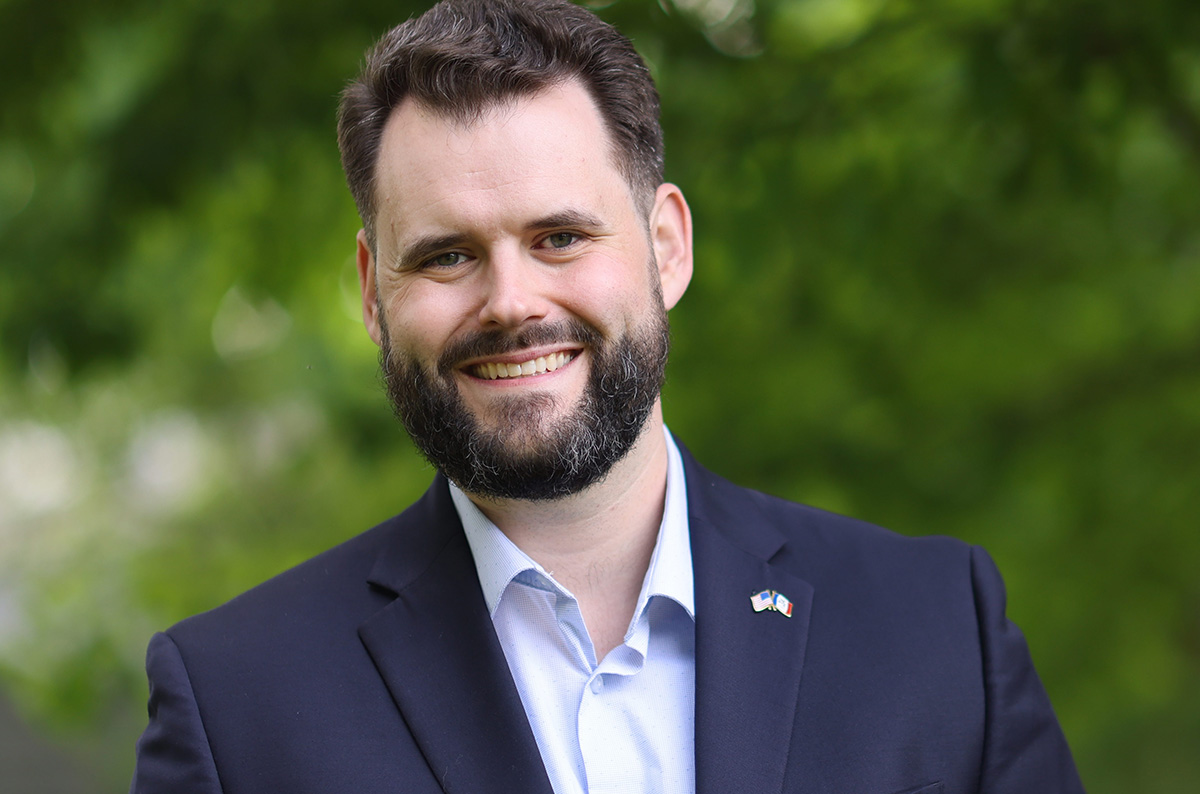
It was 15 years ago, on Jan. 30, 2011, that a college student, Zach Wahls, bravely stood in front of the Iowa Legislature, and spoke out, defending the marriage rights of his two moms. On Jan. 28 we will celebrate the 15th anniversary of that speech. That was the first time I, and millions of others, heard of Zach Wahls. I know Zach had no idea that speech would propel him to national prominence. It went viral, and Zach was invited to appear on the Ellen DeGeneres show, among other appearances.
At the time, he was an engineering student at the University of Iowa. As he has said, when he prepared his notes over the weekend for his Monday speech to the legislature, he had no idea where this would lead him. Today, so many of us, not just his moms, have the chance to repay him for what he did that day, when he defended all our rights in Iowa. In the past 15 years, Zach has never stopped standing up for the rights of his moms, and for all of us in the LGBTQ community.
I first met Zach at an event in Washington, D.C., when he was leading the fight to allow gay men to be leaders in the Boy Scouts of America. Having been a Boy Scout myself, and an Explorer adviser, and having promoted scouting for the handicapped (the term we used back in those days) this was an important fight for me. I was both honored to meet Zach, and have the chance to join him in that fight. Since then, I have followed his career. First as he went to Princeton for his graduate degree, and then back to Iowa, he is a sixth generation Iowan, to run for, and win, a seat in the Iowa State Senate. He was then elected to the post of minority leader. Today, Zach is running to become the United States Senator from Iowa. Zach is a member of the younger generation so many of us want to see serving in Congress.
As soon as I heard Zach was running, I endorsed him. Many of you may have read my endorsement column in the Blade. He was recently in Washington, D.C. for a fundraiser held at the Women’s National Democratic Club, where I had the pleasure of meeting his wife, and his absolutely adorable son. I kidded him he should never go campaigning without them. Now, it’s important to remember, he is running in Iowa. Not an easy race to win. He has a primary to win, which I firmly believe he will, and then his likely opponent is the ultra MAGA Republican Congresswoman Ashley Hinson (R-Iowa). A poll done just before Sen. Joni Ernst (R-Iowa) said she would not run again, had Zach leading her. That may have been part of the reason she dropped out. If you followed Zach’s career in Iowa, you understand why Iowans would vote for him. If you haven’t, take a look at his website, to get an idea of where Zach stands on the issues, and the things he has been doing to fight for all Iowans. His proposed federal legislation, Keep the Promise Act, would strengthen Social Security. Zach understands we need to defeat the fascists working with the felon in the White House, before they totally destroy our country. He understands we need to fight for affordable healthcare for all, for his constituents in rural Iowa, who are getting hit the hardest by the felon’s policies. Iowa farmers are losing their farms because of the felon’s policies. While continuing to fight for the LGBTQ community, Zach has always understood, we are part of the broader community he is now fighting for.
I hope those of you who read this column, will join with me, support Zach, and be part of the Zoom call on Wednesday, Jan. 28, to celebrate the 15th anniversary of Zach’s speech to the Iowa Legislature. To join, click on this link, and sign up. I also ask you to share this link with everyone you know. Our community owes something to Zach, but everyone will benefit, if Zach Wahls ends up in the United States Senate. He will make us all proud.
Peter Rosenstein is a longtime LGBTQ rights and Democratic Party activist.
-

 U.S. Supreme Court4 days ago
U.S. Supreme Court4 days agoSupreme Court hears arguments in two critical cases on trans sports bans
-

 Virginia5 days ago
Virginia5 days agoWoman arrested for anti-gay assault at Alexandria supermarket
-

 District of Columbia4 days ago
District of Columbia4 days agoRuby Corado sentenced to 33 months in prison
-

 Commentary5 days ago
Commentary5 days agoHonoring 50 queer, trans women with inaugural ‘Carrying Change’ awards

